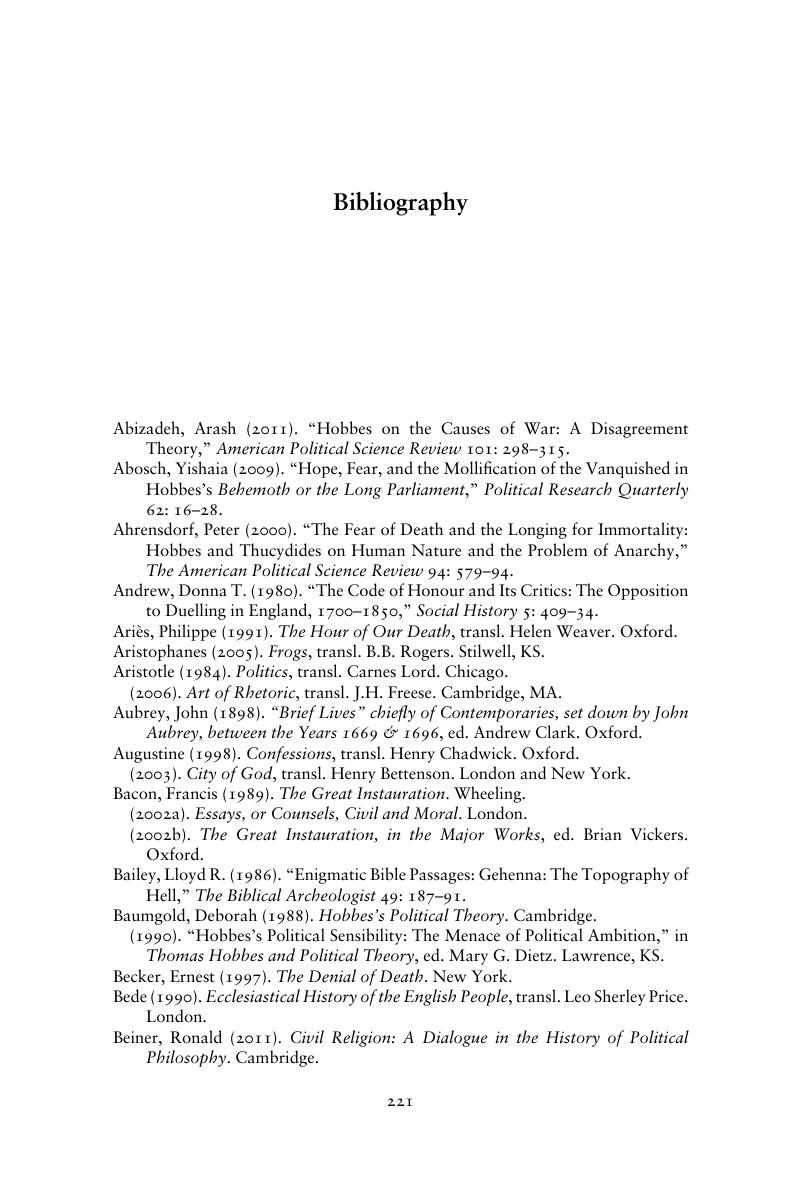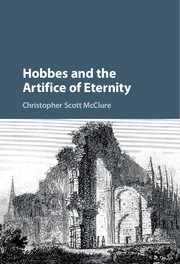Book contents
- Hobbes and the Artifice of Eternity
- Hobbes and the Artifice of Eternity
- Copyright page
- Contents
- Acknowledgments
- 1 The Desire for Immortality as a Political Problem
- 2 The Effectual Truth of Hobbes’s Rhetoric
- 3 Leviathan as a Scientific Work of Art
- 4 The Hollow Religion of Leviathan
- 5 Hell and Anxiety in Hobbes’s Leviathan
- 6 War, Madness and Death
- 7 Self-Interest Rightly Understood in Behemoth
- 8 The Afterlife of Immortality
- Bibliography
- Index
- References
Bibliography
Published online by Cambridge University Press: 13 October 2016
- Hobbes and the Artifice of Eternity
- Hobbes and the Artifice of Eternity
- Copyright page
- Contents
- Acknowledgments
- 1 The Desire for Immortality as a Political Problem
- 2 The Effectual Truth of Hobbes’s Rhetoric
- 3 Leviathan as a Scientific Work of Art
- 4 The Hollow Religion of Leviathan
- 5 Hell and Anxiety in Hobbes’s Leviathan
- 6 War, Madness and Death
- 7 Self-Interest Rightly Understood in Behemoth
- 8 The Afterlife of Immortality
- Bibliography
- Index
- References
Summary

- Type
- Chapter
- Information
- Hobbes and the Artifice of Eternity , pp. 221 - 230Publisher: Cambridge University PressPrint publication year: 2016



